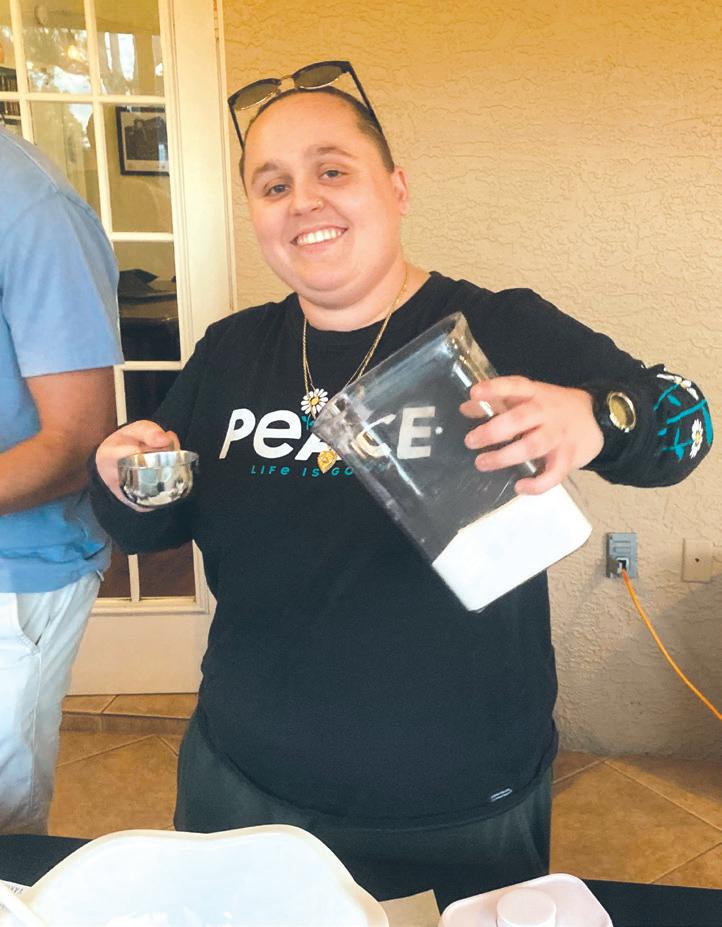
4 minute read
The courage to have a real Seder
Rabbi Howard S. Herman DD
Every year, as Jews, we are exhorted to tell and retell the story of our slavery in Egypt and of our Exodus from that slavery to freedom. So, we sit down to a Seder every year and we tell the story. We do it with narrative, poetry, music, art, culinary cues and rituals. We do it as families and with friends. We do it together as communities and congregations. We do it with Jews and non-Jews. We invite “all who are hungry” to come and eat. We add new rituals and texts updating and exploring modern versions of the same hatred, distain and prejudice our people experienced by narrowminded rulers in Egypt.
Never once, in all the history of Judaism, did any of the rabbis or sages or leaders of the Jewish people ever say, “if any of the Passover story makes you feel bad you shouldn’t tell it.” They never said, “alter the story so that it gives you a positive feeling about who you are.” They never said, “we have to change the focal points of what we are ‘sedering’ about, so that we should feel good about ourselves.”
They never said any of these things for a whole host of reasons: Firstly, the truth of history is the truth of history. We need to know the truth so that we can do differently in our world.
Secondly, they intuitively knew that you can’t legislate feelings. Whatever someone is going to feel, they are going to feel, whatever that is. We don’t make judgement calls on feelings, they simply are what they are. Our feelings have a way of helping us explore who we are and grow from there.
Thirdly, the leaders of the Jewish people, in commanding us to tell the story over and over, knew that, if we didn’t reprise it year after year, it would disappear in future generations and it is too much an important part of our history to allow that to happen.
We are living in a time in Florida when our civic leaders and legislators are not only asking but telling us we need to change the narrative about Black history and slavery. We need to make ourselves and our students feel good about who we are and proud of our American heritage.
I don’t know this for a fact, but most people I have spoken to tell me that, after sitting at a Seder, they feel pretty good about themselves as Jews and as human beings. The Seder exhorts us to “know the heart of the stranger, because you, too, were strangers in the land of Egypt.” You are asked to put yourself in the place of the Jewish slave and make it seem as if you, yourself, were redeemed from slavery. In doing this, we try to feel the pain and the distress. For centuries, Jewish leaders have told us to do this because it was hard, because it was painful. at is one of the ways we learn. In all the history of Judaism, we are never told we have to tell the story from the Pharaoh’s point of view, where he might have a point about losing free labor.
Learning comes in a variety of formulations. My mother used to say, when I put my hand on a hot stove, “I guess you’ve ‘learned” to never do that again.” Just because a subject is difficult psychologically and emotionally doesn’t mean it shouldn’t be taught — and taught from the point of view of truth.
The way we alter a Seder is by adding the plight of modern-day oppressed people; not by taking out what happened in the past. Whitewashing, and altering history, as civic leaders and legislators here in Florida are trying to do, serves no educational purpose whatsoever. I am not even certain it even allows people to feel better about themselves. Feeling good about yourself is important but it is not a mandatory part of the quotient of learning. I am all in, for people feeling positive about themselves, but that, in and of itself, doesn’t bring about real sustainable change nor knowledge. The philosophy of the Seder does.
A zissen Pesach to you.
Rabbi Howard S. Herman DD serves at Naples Jewish Congregation.







